Artificial intelligence is no longer just a promise but a reality redefining the contours of business. However, its effective integration within organizations still presents major challenges. During an illuminating discussion with François Bracq, Head of Innovation Partners at Google, Justine Nerce, CEO of Artefact France, shared her insights on how to approach the emergence of AI agents in our marketing, communication, and operational processes. Her intervention highlighted the imperatives for successful adoption.
Continuous evolution: From startup to AI leader
Justine Nerce began her journey at Artefact ten years ago, at a time when the company had fewer than 20 employees. The initial DNA was strongly rooted in data marketing, with the deployment of DMPs and the enrichment of customer data. She then supported the move to cloud, essential for exploring the first uses of AI, particularly scoring, propensity modeling, and clustering. The next major challenge was the industrialization of AI. Moving from isolated proofs of concept (POCs) to concrete value required the implementation of robust platforms and the development of MLOps and ML Engineering. For the past three years, the main obstacle has no longer been technological, but human. With the advent of generative AI, transforming organizations to embrace these tools has become a priority. AI agents mark a new era, promising massive value creation by acting at the heart of business processes.
Current challenges for a CEO facing AI transformation
As CEO of Artefact France, Justine Nerce identifies two major challenges: internal transformation related to AI and the evolution of offerings.
Internal transformation involves rethinking tomorrow’s skills and equipping existing talent. For example, the role of Product Managers will gain importance, as they will be able to prototype and even create simple products via No Code platforms or web apps. Developers will see their tasks evolve with code generation, debugging, and test automation tools. The goal is to adopt a positive view of AI, seeing it as a human augmentor that improves productivity. However, it is crucial to regulate the use of these tools, especially for young talent, to ensure that the fundamentals are mastered before automation takes over. The challenge for Artefact is to remain distinctive in a world where the ability to generate code or create simple products is becoming increasingly widespread.
In terms of product development, in a challenging economic climate, customers are increasingly looking for solutions that deliver tangible productivity gains. While generative AI has already enabled individual productivity gains (around 57 minutes per day according to an Artefact-Odoxa study), agentics promises much greater value at the enterprise level. It is no longer just a question of optimizing use cases, but of rethinking entire processes to drastically reduce time and increase output. Artefact supports its customers in three major areas: structuring agentic programs, which consists of identifying key areas and processes, technological enablers, and supporting human transformation; the implementation of platforms to equip companies to create agents in a supervised and controlled manner; and finally, reshaping functions, which aims to support the redesign of entire functions, such as marketing, for greater process efficiency.
Tomorrow’s marketing: Interaction, context and efficiency
Justine Nerce assesses the current maturity of marketing departments, which have made notable progress in data collection, activation, personalization, and measurement. However, difficulties persist, notably operational saturation due to time-consuming and repetitive tasks, and personalization that often remains superficial.
Marketing in the coming years will have to address three major challenges. First, it will require re-establishing a direct link with the consumer. With AI assistants, brands have an unprecedented opportunity to position themselves directly in front of consumers, who use them to search, compare, and buy. Second, companies will have to move from content marketing to interaction marketing. AI’s ability to understand the global context of interactions (for example, a client who is not just looking for a sofa, but who is “redecorating their living room”) opens up prospects for deeper personalization and customer relationships. Finally, the goal will be to achieve the promise of the right message, on the right channel, at the right time. AI agents will allow for doing “10 times better, 10 times faster, and 10 times cheaper,” especially for content production, which is currently very expensive and time-consuming.
The future marketer: Orchestrator of AI agents
Artefact’s conviction is that AI will not replace marketers, but will augment them. The marketer of tomorrow will be an orchestrator and manager of a multitude of AI agents. Their role will shift from execution and production to orchestration, testing, and interpreting results.
Two main types of agents will emerge to support these functions. First, there will be Task Agents, individual productivity agents that will assist marketers on a daily basis, such as generating posts for social media or adapting content for different platforms. They will improve the workplace of tomorrow. Then there will be Workflow Agents, who will have transformative power by automating entire organizational processes, such as managing a campaign from start to finish, from insight generation to post-mortem analysis, or automating large-scale website creation. They will also enable advanced simulations to optimize budget strategies and test campaigns.
AI adoption: An imperative for human transformation
The adoption of AI agents is not an option, but a necessity. Many companies are seeing their employees use public AI assistants without any control, exposing the company to data leakage risks. For adoption to be successful, it is crucial to support employees. A recent study reveals that 51% of employees feel they lack the skills to use AI effectively. Beyond top-down training, it is essential to create internal communities to discuss these topics, encourage cross-functional exchanges, and create specialized prompt libraries to foster new use cases and boost adoption. It is also important to engage in social dialogue to discuss the impact of AI on skills and jobs, as AI can have a positive social impact by relieving time-consuming and repetitive tasks. Finally, it will be necessary to set up internal schools to reposition the skills that will be massively impacted by automation.
In conclusion, the emergence of AI agents extends far beyond the technological realm. It is a fundamentally organizational, strategic, and human challenge, requiring a holistic approach and a clear vision to guide the redefinition of the company’s role in this new paradigm.
Watch the replay in French:
Watch the video capsule in French:

 BLOG
BLOG






